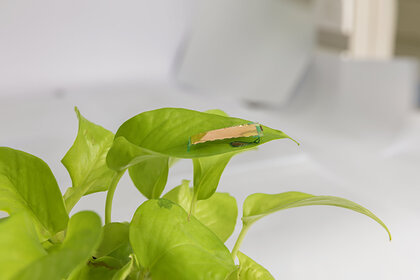Engineers at the University of California at Berkeley have developed a robot the size of an insect. He is able to move through mazes with the agility of a cheetah and penetrate into the most inaccessible places, writes the Tech Xplore portal.
The developers noticed that the ability of insects to climb walls and walk on the ceiling is due to special sticky pads on their paws. This principle of electrostatic adhesion has been used to create a cockroach-sized device that can turn with the agility of a cheetah, move across rough terrain and avoid unexpected obstacles.
The novelty is made of a thin puff material that bends and contracts when an electric voltage is applied. Applying voltage to any of the pads on the paws increases the electrostatic force between it and the surface, causing this pad to adhere more firmly to the surface. Thanks to its simple design, the robot remains unharmed, even if a 120-kilogram person steps on it.
"In this work, the main innovation was the addition of footrests that allow the robot to make very fast turns," said Liwei Lin, a professor of engineering at the University of California, Berkeley. He noted that the mechanism is very fast, quite strong and consumes little energy, which allows it to carry sensors, electronics, as well as a battery."
Small robots, similar to the development of engineers from Berkeley, could be ideal for use in search and rescue operations or identifying potential gas leaks, Lin said. In addition to the robot, which was controlled by a small electric wire, scientists have created a version that can run on a battery for up to 19 minutes at a distance of up to 31 meters.
Earlier it became known that in Stavropol, scientists have created a robot nurse to help doctors fighting COVID-19. The robotic medical assistant is called "RoMA". It has a webcam, sensors and software control, so that its movements can be controlled remotely.
Irma Kaplan

